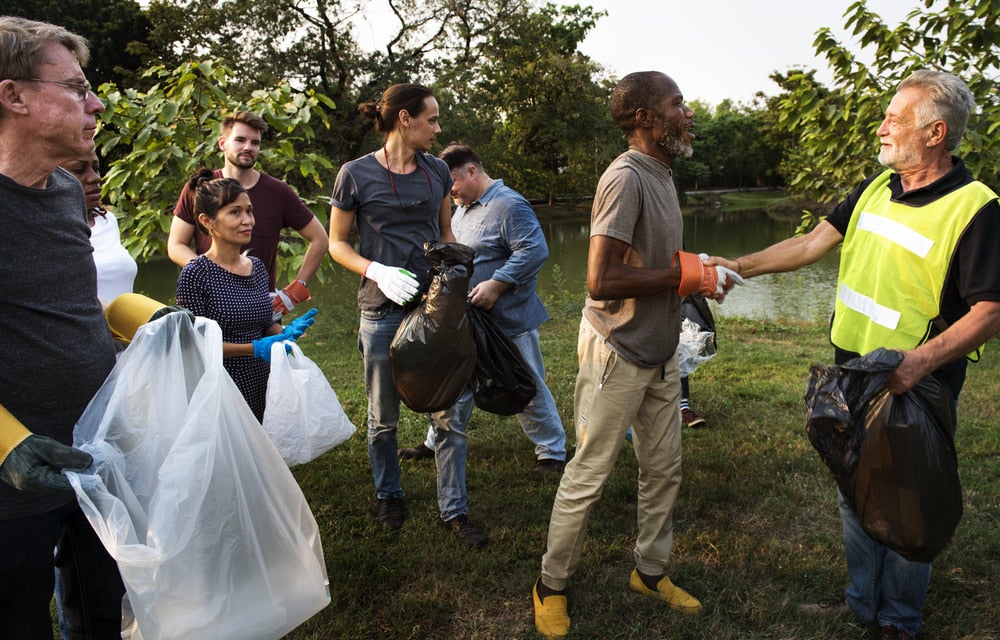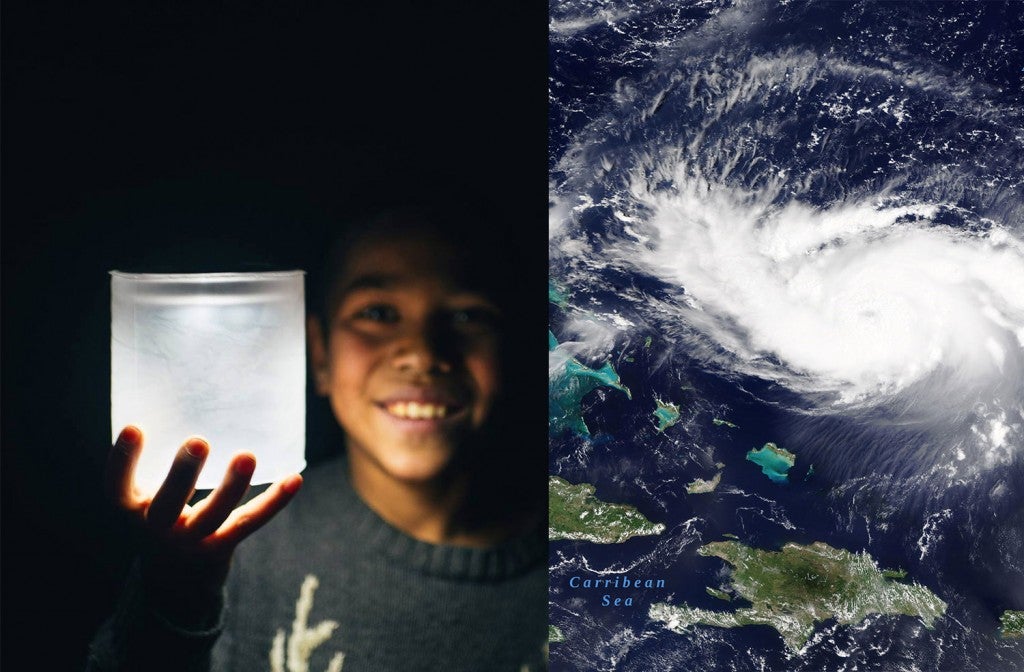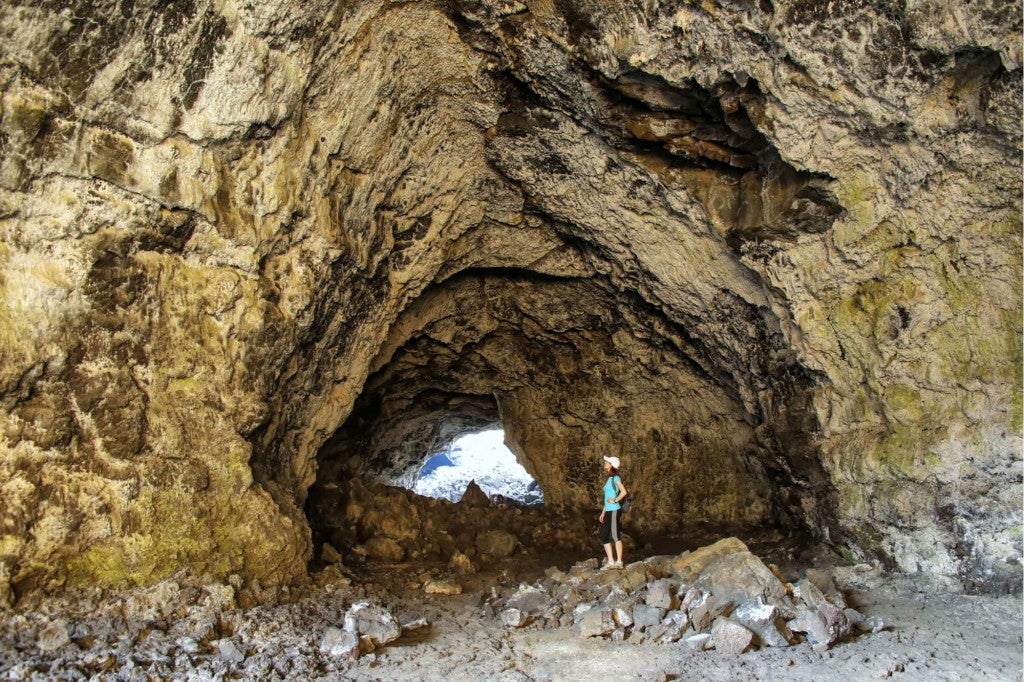Even the most dedicated and intrepid adventurer has limits to their outdoors lifestyle while trying to balance, well, the rest of life. When evenings and weekends just aren’t enough to satisfy your outdoor itch and your plans are bigger than your paycheck, it’s time to start looking for outdoor jobs.
But what if you’re not ready to ditch your belongings, live out of cell phone range, or subsist on seasonal employment? What if you want something stable, with room for growth, that doesn’t come with government red tape? Can you find stable, sustainable work that gets your outside regularly? Kyle Strauss, a long-time employee of land trusts and The Nature Conservancy, says yes—by working with environmental nonprofit organizations.
“Working for a conservation non-profit allowed me to quite literally get my hands dirty every day,” said Strauss. “Desk jobs turn ‘outdoorsy’ people into weekend warriors where they cram as much time in nature as possible before Monday morning comes. Conservation non-profit jobs allow you to spend time in nature all week long.’
Interested in the Outdoors Industry? Consider Environmental Nonprofit Jobs
The upsides of working environmental nonprofit jobs are numerous, and at first, obvious. But unless you become the director of a very large and very successful organization, odds are the monetary compensation from your work will be less than what you might get working for the government or, truthfully, most other places. And at that point, the chances of you holding such a position and retaining the ability to work outside on the regular are pretty slim. The sorts of positions that will keep you outdoors for longer tend to be environmental nonprofit jobs that are entry- to mid-level management and focus on conservation, education and outreach. Those jobs, to an outdoor adventurer, are golden.
Jobs with environmental nonprofits tend to be more prevalent, especially in the U.S., and easier to land than a position with a private tour company or government agency. Nonprofits almost always have several points of entry that allow you to meet people and establish a relationship before you ever apply whether it’s by donating to programs, attending member events, volunteering, or connecting through intermediate institutions like schools that host these groups. Those points of entry make it easy to learn about the organization, determine if you are a good fit, and lay some groundwork for filling their next opening.
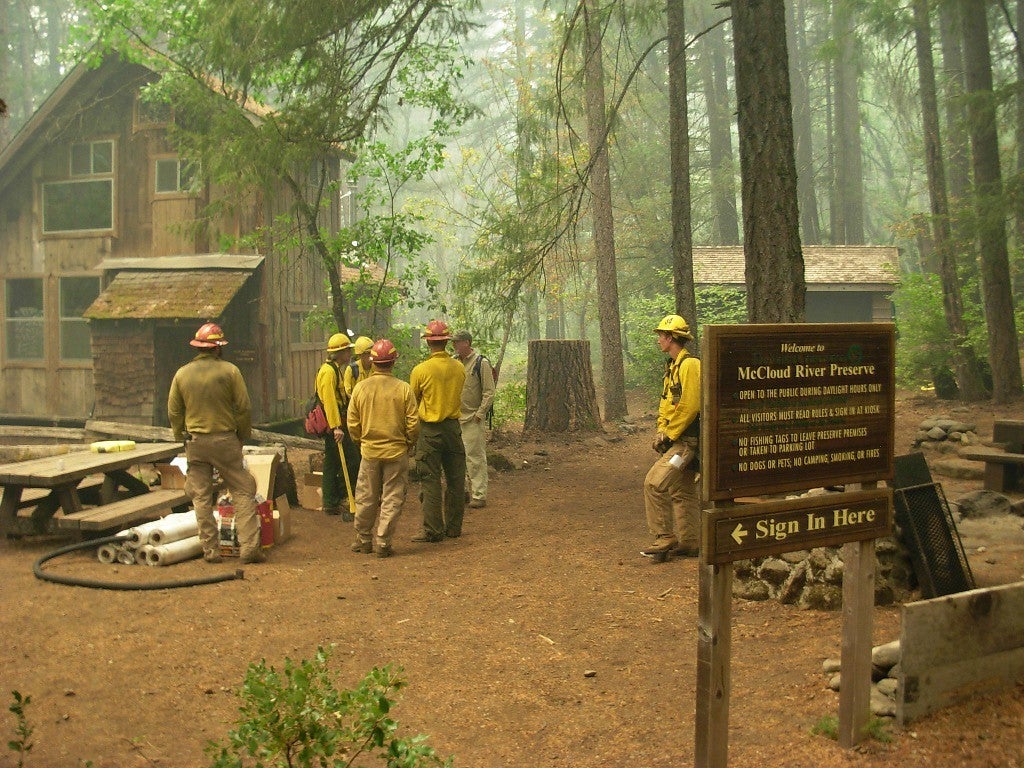
A Nature Conservancy fire crew stationed at the McCloud River Preserve helps protect structures from fire damage. Image from George Stroud, The Nature Conservancy
Once you’re in, you’ll find that while the compensation may seem low, non-profits tend to make up for that with a host of progressively-minded benefits like flexible hours, paid parental leave packages, wide-ranging medical benefits, and a work culture that is mindful of issues like inclusion and equity. The Sierra Club, for example, offers a comprehensive health care package that covers 100 percent of the premium for the majority of its employees and a 401(k) retirement plan with a generous employer matching program. The Nature Conservancy too, is well known for its benefits, including its longstanding dedication to a 35-hour work week. These kinds of groups are also known for providing training and advancement opportunities to staff that stay with them over time.
More important for those with a true outdoor itch, these groups have jobs that get you outside doing more than wearing a big hat and reciting a canned wrap for tourists, they let you interact with the environment. Jobs at environmental groups range from hands-on education and outdoor guiding to scientific research and surveying, restoration, or film and videography, among many other things.
Importantly, because the work that environmental groups do is diverse, the skills sets you build working for them will also range in experience—something that serves you for the rest of your life as you grow your resume and build an outdoor career.
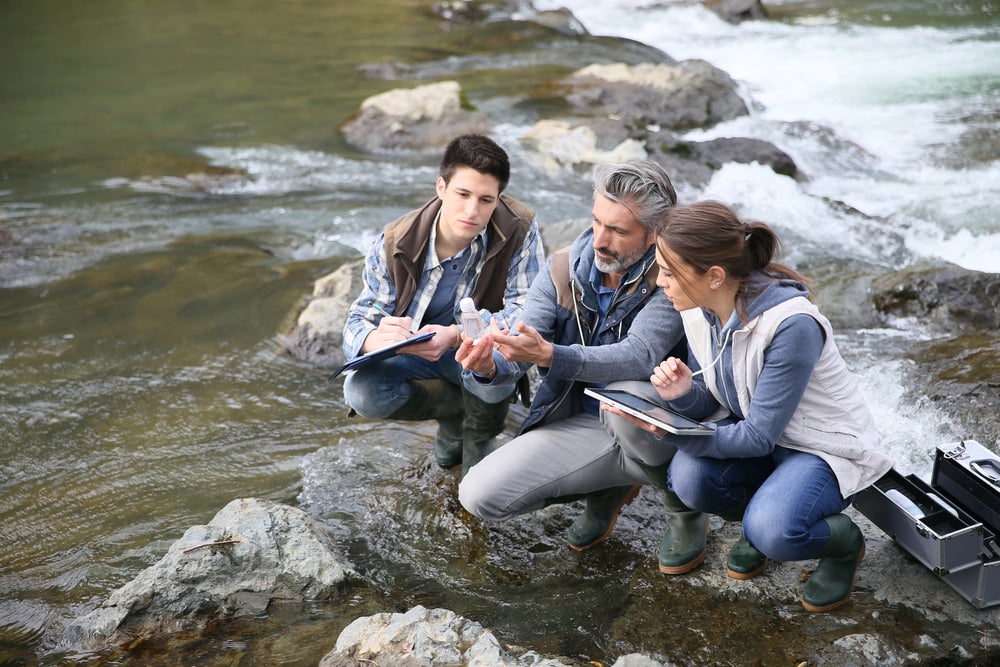
Researchers test water quality in wild rivers and streams.
And all that time outside? Often it’s in a diversity of places that changes over time as the focus of the organization shifts in response to politics, land use decisions, and other factors like the specific needs of individual species or the impacts of climate change. More than that, working for environmental non-profits can get you into to lesser known and traversed wilderness and conserved or protected areas, giving you unprecedented access to special places and wildlife that you just can’t experience from overrun trails and popular viewpoints. That kind of access comes with another bonus, the opportunity to ski, trek, dive, or kayak to remote areas, effectively turning your day job into a dream back country adventure, but one that is backed up by the experience, gear, and insurance of your employer.
The best benefit though is that at the end of the day, you come home to your own space knowing that what you do makes a difference in the world. Chandra LeGue, who works for Oregon Wild, a non-profit dedicated to preserving and protecting Oregon’s wildlife and wild places puts it this way, “With a job working to ensure our public lands, water, and wildlife have the protections they need, you can ensure that those places and experiences you love are still going to be there for you, for your kids, and for everyone else who enjoy spending time outdoors.” Not bad, for a day job.
The Dyrt is the only camping app with all of the public and private campgrounds, RV parks, and free camping locations in the United States. Download now for iOS and Android.Popular Articles:
Articles on The Dyrt Magazine may contain links to affiliate websites. The Dyrt receives an affiliate commission for any purchases made by using such links at no additional cost to you the consumer.

